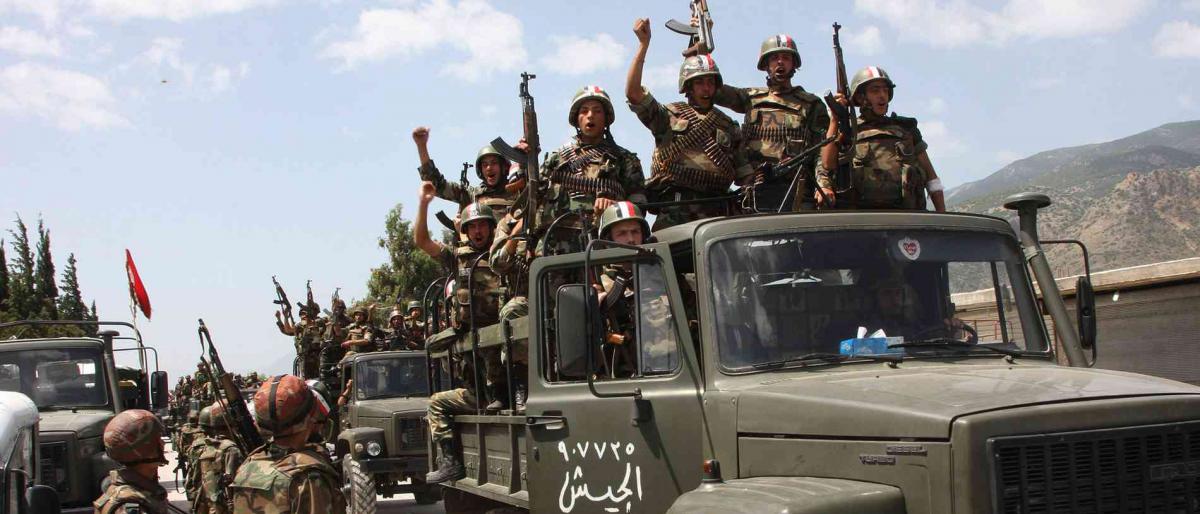Following the so-called reconciliation deals in Daraa, Syrian security forces and sectarian militias have arrested a number of members of armed opposition groups in various parts of Daraa and its countryside, from Lajat to Mahajjah, over the last week, while regime forces and its security agencies have carried out a campaign of raids and arrests in the town of Mahajjah and in the northern Daraa countryside.
Local sources said that regime forces have arrested four members of groups which agreed to reconciliations in Daraa on the pretext that these four people had been fighting alongside the Islamic State (ISIS). Daraa province has been witnessing many violations by Syrian regime forces, who have continued to carry out arrests in the towns and villages of Daraa province, thereby breaching the agreements made with the Russians and their guarantors.
We asked those concerned their opinions about these arrests and whether these violations would continue and to what extent they could affect the return of displaced Daraa residents from Jordan, and whether these arrests had embarrassed the Russian guarantor.
The Syrian artist Abdulhakim Quteifan told Jiroun: “It is not possible for the regime to abandon its bloodthirsty, dictatorial and revenge-minded mentality toward the Syrian people who denied them. In Daraa province, there are about 100,000 young men wanted by Syrian security, and so every day we hear about campaigns of arrests— and possibly even physical liquidations. The pretexts are ready and do not need much effort.”
General Ibrahim al-Jabawi, a spokesman for the Southern Front, told Jiroun: “The violations are ongoing and have never stopped in Daraa province, especially in the villages and towns which agreed to reconciliations or settlements through the Russian guarantor and did not carry them out with the regime directly.” He said: “Every area which accepted the reconciliations with the Russians is affected because the regime is working to breach these reconciliations and then carry out arrests in every town under various, fabricated pretexts, including that they are wanted for military service, as well as judicial summons, which have recently appeared against leaders of Free Syrian Army groups who carried out settlements in the area.”
Jabawi said that the regime “when it cannot arrest one of the rebel group commanders who made a settlement with the Russian guarantor directly, instructs its gangs in the cities and towns to issue a criminal charge against them. You cannot be arrested for political or revolutionary crimes, and so they use criminal charges to arrest them by way of the courts under their control.” He added: “There are militias which support the regime in these campaigns and it is continuing to use them because the Russians do not have forces on the ground, but only issues orders from Hemeimeem base. The regime continues its breaches and violations of the agreements until the orders to stop are delivered. By the time the orders arrive, they may have in large part been already carried out.”
Syrian researcher Essam Mahamid told Jiroun that this was “expected from the regime and its security agencies, and the Russians will not stop them even if they want to. The United Nations has said a number of times that Syria’s situation is unsafe, and does not advise Syrians to return. Jordan is governed by security concerns, and Syrians are afraid of rushing to return.”
This article was translated and edited by The Syrian Observer. Responsibility for the information and views set out in this article lies entirely with the author.


